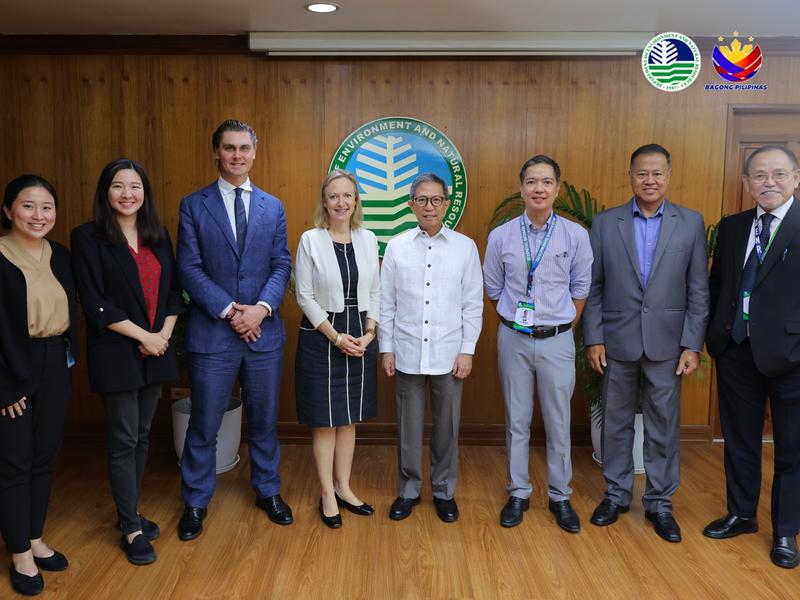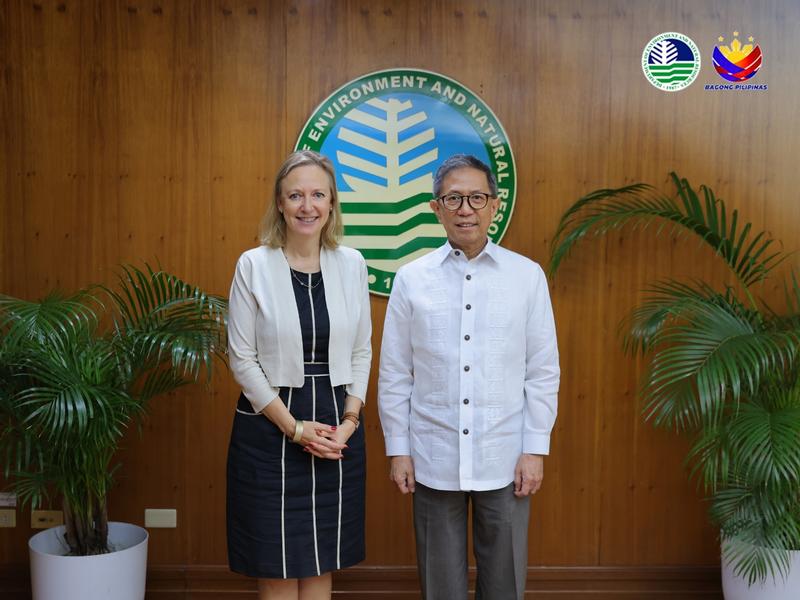The Philippines and Sweden have agreed to deepen cooperation in sustainable mining and critical minerals development, aligning the country’s push for responsible resource management with Sweden’s expertise in green technology and circular economy practices.
The Department of Environment and Natural Resources (DENR), led by Secretary Raphael P. M. Lotilla, hosted Swedish Ambassador Anna Ferry and her delegation during a recent courtesy meeting at the DENR Central Office in Quezon City.
Joining Secretary Lotilla were Undersecretaries Jonas R. Leones and Carlos P. David, along with Assistant Secretary and concurrent Mines and Geosciences Bureau (MGB) Officer-in-Charge Director Michael V. Cabalda. The Swedish side included Trade Commissioner Johan Lennefalk, Senior Trade Promotion Officer Giselle Yap, and Jayne Yang of Business Sweden.
Focus on sustainable and responsible mining
According to the DENR, the dialogue focused on key areas of cooperation, including sustainable mining, critical minerals development, circular economy, and water resource management.
The discussions covered ways to strengthen environmental and social standards in mining operations, improve waste management, and promote responsible sourcing and value addition for minerals essential to the global energy transition.
The meeting also explored opportunities for research collaboration, technology transfer, and capacity-building to support the Philippines’ transition toward a low-carbon and climate-resilient economy.
Policy reforms and new mining law developments
The strengthened bilateral cooperation comes as the Philippines undergoes significant reforms in its mining sector. Earlier this year, Congress ratified the Enhanced Fiscal Regime for Large-Scale Mining Act, which seeks to establish a standardized fiscal framework for all large-scale mining operations, regardless of agreement type.
The measure, ratified by the bicameral conference committee in June 2025, simplifies the taxation system and ensures a fair and equitable sharing of revenues between the government and mining contractors. It also removes disparities between Mineral Production Sharing Agreements (MPSAs) and Financial or Technical Assistance Agreements (FTAAs), promoting fiscal transparency and investor confidence.
In another key development, the Supreme Court ruled that local government units (LGUs) cannot impose blanket bans on large-scale mining projects. The Court emphasized that regulatory powers over mining operations remain vested in the national government under the Mining Act of 1995, reinforcing policy consistency across jurisdictions.
Meanwhile, implementation of the Philippine Mineral Reporting Code (PMRC) 2020 continues to strengthen transparency and accountability among mining companies. The PMRC requires periodic disclosures on exploration results, resource and reserve estimates, and environmental performance, aligning Philippine practices with international standards.


Strengthening the critical minerals supply chain
The partnership with Sweden is also seen as a step toward enhancing the Philippines’ role in the global critical minerals supply chain. With growing demand for nickel, copper, cobalt, and other minerals vital to electric vehicles and renewable energy systems, both nations are exploring ways to boost local value addition and sustainable processing capabilities.
Sweden’s experience in low-carbon mining technologies, mineral recycling, and circular economy initiatives is expected to complement the Philippines’ ongoing efforts to modernize its mining governance and promote responsible resource utilization.
A path toward sustainable industrial growth
The Philippines’ engagement with Sweden signals a broader shift in its approach to resource management—from extraction to innovation and sustainability. Through technology partnerships and regulatory reforms, the country aims to develop a mining industry that supports both economic growth and environmental stewardship.










